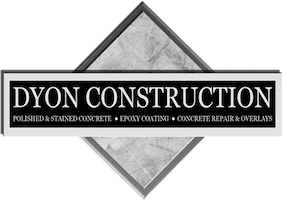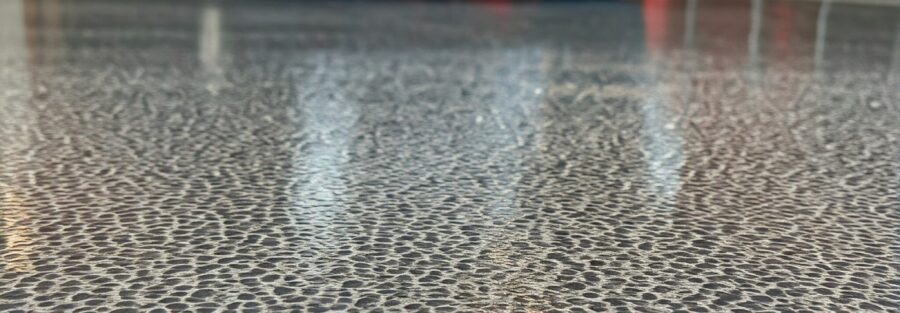Your garage is more than just a storage space for cars and tools—it’s an extension of your home’s functionality and style. Whether you’re using it for storage, a workshop, or a personal showroom, the flooring sets the tone. Unfortunately, most garage floors are plain, unfinished concrete prone to cracks, stains, and wear over time.
This is where epoxy flooring steps in to save the day. Renowned for its durability, aesthetic versatility, and low-maintenance appeal, epoxy flooring has become the go-to solution for homeowners looking to elevate their garage spaces. From glossy metallic finishes to textured designs that mimic granite or stone, epoxy offers an array of options to suit every need and taste.
Let’s delve deeper into the world of epoxy garage flooring to discover why it’s an investment worth making.
Why Choose Epoxy Flooring for Your Garage?
Epoxy flooring offers a combination of durability and aesthetic enhancement that traditional concrete simply cannot match. It transforms a basic garage into a polished, professional space that is as practical as it is visually appealing. Unlike untreated concrete, epoxy is resistant to wear, stains, and the rigors of everyday use.
The real magic of epoxy lies in its versatility. Whether you want a sleek, modern look with a high-gloss finish or a more functional, slip-resistant surface, epoxy flooring delivers. It is an excellent choice for homeowners who want to upgrade their garage without breaking the bank.
Benefits of Epoxy Garage Flooring
1. Unmatched Durability
Epoxy flooring is incredibly resilient, making it ideal for garages that see heavy traffic. It can withstand the weight of vehicles, tools, and machinery without cracking or chipping. Whether you’re a car enthusiast or a hobbyist with heavy equipment, epoxy can handle it all.
2. Chemical and Moisture Resistance
Garages are often exposed to oil, grease, cleaning agents, and moisture. Epoxy coatings create a protective barrier that repels these substances, preventing stains and damage. This makes cleanup quick and effortless.
3. Customizable Aesthetic Appeal
Epoxy flooring offers endless design possibilities. Choose from solid colors, metallic finishes, decorative flakes, or even custom logos to make your garage truly one-of-a-kind. It’s the perfect way to reflect your personality while enhancing your home’s value.
4. Low Maintenance
Thanks to its seamless, non-porous surface, epoxy flooring is incredibly easy to clean. Dust, dirt, and spills can be wiped away with minimal effort, making it a practical choice for busy households.
5. Improved Safety
Slip-resistant additives can be incorporated into epoxy coatings to ensure a safe surface, even in areas prone to spills or moisture. This is particularly important for families or those using their garage as a workspace.
6. Long-Lasting Investment
With proper installation and maintenance, epoxy flooring can last 10–20 years, offering an excellent return on investment.
Applications of Epoxy Garage Flooring
1. Residential Garages
For homeowners, epoxy flooring transforms a standard garage into a polished, high-end space. Whether you’re storing your car, working on DIY projects, or setting up a home gym, epoxy provides a sturdy and attractive foundation.
2. Commercial Garages
Auto repair shops and industrial garages benefit from epoxy’s durability and chemical resistance. Its professional appearance also enhances the credibility of any commercial space.
3. Workshops and Studios
Epoxy flooring creates a safe, easy-to-clean surface for workshops, art studios, or crafting areas. Its durability ensures that dropped tools or spills won’t damage the floor.
4. Showrooms
For car enthusiasts or collectors, epoxy flooring offers a sleek, high-gloss finish that highlights vehicles and showcases their beauty.
5. Storage Areas
Epoxy flooring is ideal for storage spaces, as it resists scratches and wear caused by moving heavy items.
Epoxy Garage Flooring Installation Process
Achieving a flawless epoxy floor requires a meticulous installation process. Each step is crucial to ensuring the longevity and performance of the flooring:
Step 1: Surface Preparation
Preparation is the most important part of the installation process. The concrete must be thoroughly cleaned to remove grease, dirt, and existing coatings. Cracks or imperfections in the concrete are repaired, and the surface is ground or shot-blasted to create a rough texture that promotes adhesion.
Step 2: Primer Application
A primer layer is applied to the prepared surface. This enhances adhesion and ensures a smooth, even base for the epoxy coating.
Step 3: Application of the Epoxy Coating
The epoxy mixture is applied in multiple layers. Depending on your design preference, decorative elements such as metallic pigments or color flakes are added at this stage.
Step 4: Curing
The floor is left to cure for 24–72 hours, depending on the type of epoxy used and environmental conditions. During this time, the epoxy hardens into a tough, resilient surface.
Step 5: Topcoat Application
A final topcoat is applied to seal the surface, enhance durability, and add a glossy or matte finish.
Comparison Table: Epoxy Garage Flooring vs. Other Flooring Options
Flooring Option | Pros | Cons | Design Options | Price Per Sq. Ft. | Durability | Maintenance |
Epoxy Garage Flooring | – Extremely durable | – Can be slippery when wet | Solid colors, metallic, or flake finishes | $4–$12 | Excellent (10–20 years) | Low |
– Resistant to chemicals, stains, and moisture | – Professional installation recommended | |||||
Polished Concrete | – Low-maintenance | – May crack over time | Grey tones and high-gloss finishes | $3–$8 | Excellent (20+ years) | Low |
Vinyl Garage Flooring | – Soft underfoot | – Less durable than epoxy | Solid colors and patterns | $2–$6 | Moderate (5–10 years) | Low |
– Easy to install, affordable | – Prone to scratches | |||||
Tile Flooring | – Variety of designs | – Grout lines need cleaning | Ceramic, porcelain, or mosaic designs | $7–$15 | Good (10–15 years) | Moderate |
– Easy to replace damaged tiles | – Can be slippery | |||||
Rubber Garage Flooring | – Soft, shock-absorbent | – Limited design options | Solid colors and interlocking tiles | $3–$6 | Moderate (5–10 years) | Low |
– Noise reduction | – Can be expensive | |||||
Concrete Coating | – Affordable | – Not as durable as epoxy | Solid or matte finishes | $2–$5 | Good (5–10 years) | Moderate |
Frequently Asked Questions
1. Is it worth putting epoxy on a garage floor?
Absolutely. Epoxy adds durability, style, and low maintenance to your garage, making it a valuable long-term investment.
2. How much does it cost to put epoxy on a garage floor?
Epoxy flooring typically costs $4–$12 per square foot, depending on the complexity of the design and whether you opt for professional installation.
3. What is the disadvantage of epoxy flooring?
Epoxy can be slippery when wet, but slip-resistant additives can mitigate this issue. It also requires professional installation for optimal results.
4. How long will epoxy floor last?
With proper care, epoxy floors can last between 10 and 20 years, even in high-traffic or heavy-use areas like garages.
5. Is epoxy cheaper than flooring?
Epoxy is more affordable than high-end options like tiles or natural stone but slightly pricier than basic concrete coatings.
Epoxy garage flooring is a transformative solution for homeowners seeking durability, style, and functionality. With its unparalleled resistance to wear and tear, effortless maintenance, and customizable design options, it’s no wonder epoxy has become the gold standard for garage flooring.
Whether you want to elevate a family garage, create a professional workspace, or showcase your prized car collection, epoxy flooring offers the perfect foundation. Say goodbye to dull, cracked concrete and embrace the sleek, polished look of epoxy. Contact a professional installer today to begin your garage transformation!

